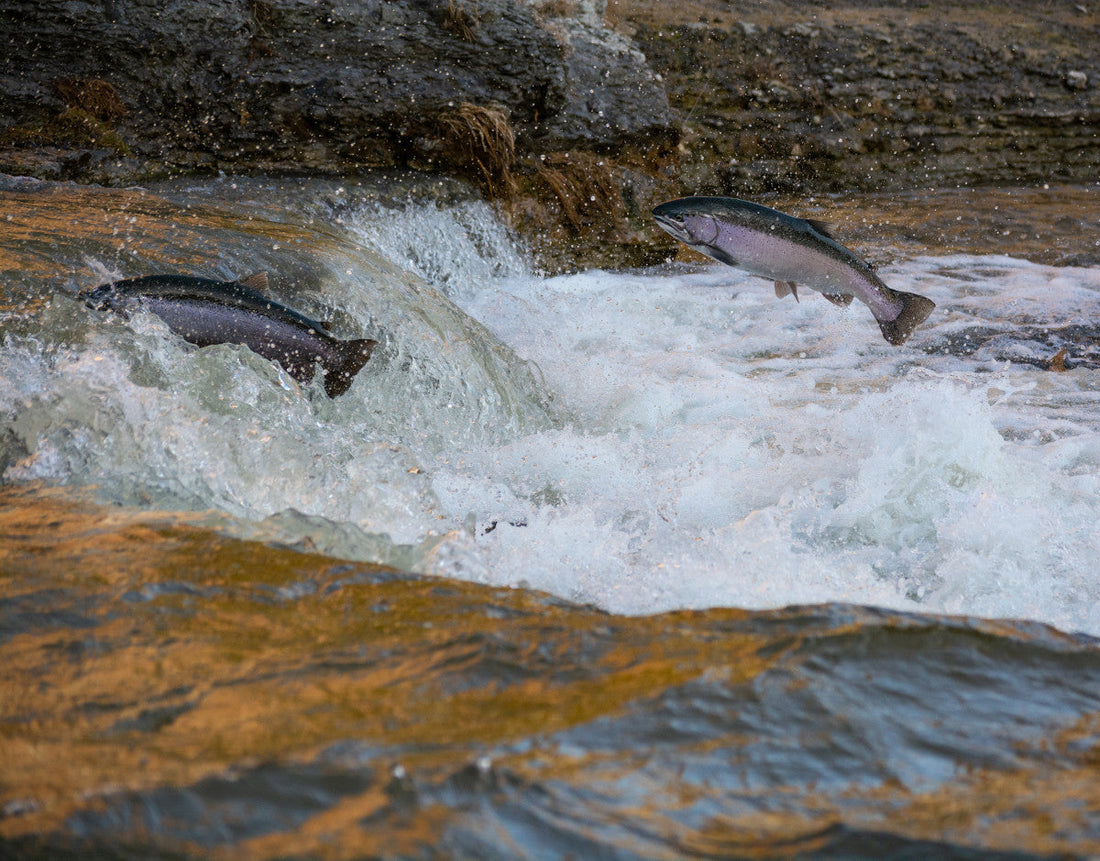
Fish Jerky Shelf Life: How Long Can You Really Keep It?
Chad MathewsShare
Can Fish Jerky Expire?
Fish jerky, like other dried meats, does have an expiration date, despite its preservation methods. While the dehydration process significantly extends its shelf life, factors such as moisture, air exposure, and microbial activity can still lead to spoilage. Typically, properly stored fish jerky can last between six months to a year, depending on the type of fish and storage conditions.
To ensure your fish jerky remains safe and enjoyable, it's essential to monitor for signs of spoilage. Look for:
- Unusual discoloration
- Mold
- An off-putting smell
Proper storage in a cool, dry place, ideally vacuum-sealed, can help maintain its quality. Always prioritize safety and trust your senses when determining if your fish jerky is still good to eat.
Factors Influencing Shelf Life
The shelf life of fish jerky is influenced by several key factors, including the type of fish used and its fat content. Lean fish varieties, such as Coho salmon, generally last longer than their oilier counterparts due to lower moisture levels, which helps inhibit bacterial growth. Proper selection of fish cuts is essential for both flavor and longevity, ensuring that the jerky remains safe and enjoyable for an extended period.
Processing methods also play a crucial role in determining how long fish jerky can last. The dehydration process is vital, as it removes moisture that bacteria and fungi thrive on. Fish that is meticulously cleaned, filleted, and dehydrated will yield a product that stands the test of time. Additionally, the use of natural preservatives in marinades can further enhance the shelf life, making the jerky not only delicious but also more resilient against spoilage.
Storage conditions are equally important in prolonging the shelf life of fish jerky. Keeping the jerky in a cool, dry place away from direct sunlight is essential to prevent moisture reabsorption and bacterial growth. In humid environments, refrigeration or the use of desiccant packs can help maintain freshness. Proper resealing after each use is also critical, as exposure to air can lead to oxidation and rancidity, diminishing the quality of the jerky.
Lastly, packaging significantly impacts the longevity of fish jerky. Vacuum-sealed packs are ideal for preserving freshness, as they eliminate air that can cause spoilage. High-quality packaging protects the jerky from external contaminants, ensuring it remains as fresh as possible. By understanding these factors, consumers can enjoy their fish jerky for months, savoring its rich flavors and nutritional benefits without the worry of spoilage.
Optimal Storage Conditions
Optimal storage conditions are crucial for maintaining the quality and longevity of fish jerky. To ensure your jerky remains fresh, it should be stored in a cool, dry place, ideally below 60°F (15°C). Avoiding direct sunlight and high humidity is essential, as moisture can lead to spoilage and bacterial growth, compromising both taste and safety.
Proper packaging plays a significant role in preserving fish jerky. Vacuum-sealed bags are the best option, as they eliminate air exposure, which can cause oxidation and rancidity. If you frequently consume jerky, consider investing in a vacuum sealer to maintain freshness. Additionally, using desiccant packets can help absorb any excess moisture, further extending the shelf life of your jerky.
While fish jerky can last between 6 to 12 months under optimal conditions, factors such as the type of fish and processing methods can influence this timeline. Lean fish varieties generally offer longer shelf lives, while proper dehydration techniques are vital for preventing spoilage. Always monitor for signs of spoilage, such as unusual odors or textures, to ensure your jerky remains safe and enjoyable.
Signs of Spoilage
When it comes to fish jerky, recognizing the signs of spoilage is crucial for ensuring safety and enjoyment. Fresh fish jerky should exhibit a consistent color and a pleasant aroma, typically smoky or fishy, depending on its preparation. Any unusual dark or light patches, fuzzy spots, or an off-putting smell are clear indicators that the jerky has gone bad and should be discarded.
Texture is another important factor to consider. Quality fish jerky should be chewy, not soggy or overly dry. If it feels excessively moist, it may have been exposed to humidity, leading to bacterial growth. Conversely, if it’s too brittle, it might have been over-dehydrated, affecting its taste. Always trust your senses; if the jerky tastes sour or bitter, it’s best to err on the side of caution and throw it away.
How Long Does Fish Jerky Last?
Fish jerky typically lasts between 6 to 12 months when stored properly, thanks to its dehydration process that removes moisture, a key factor in spoilage. Factors such as the type of fish used, packaging, and storage conditions significantly influence its shelf life. Always check for signs of spoilage, like unusual odors or textures, to ensure safety and quality.Tips to Prolong Shelf Life
To prolong the shelf life of fish jerky, proper storage is essential. Keep it in a cool, dry place away from direct sunlight, ideally below 60°F (15°C). Resealing the package tightly after each use minimizes air exposure, which can lead to rancidity. For longer preservation, consider vacuum sealing or using desiccant packets to absorb moisture.
Additionally, the type of fish used plays a significant role in longevity. Lean fish varieties, like Coho salmon, generally last longer than their oilier counterparts. Proper dehydration is crucial; removing excess moisture prevents bacterial growth. While fish jerky can last 6 to 12 months under optimal conditions, always check for signs of spoilage, such as unusual odors or textures, to ensure safety.
